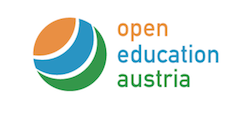For the new issue of „Zeitschrift für Hochschulentwicklung“ about „Learning Analytics: Implications for Higher Education“ we did a contribution titled „Driving Student Motivation in MOOCs through a Conceptual Activity-Motivation Framework„.
Abstract:
Massive Open Online Courses (MOOCs) require students’ commitment and engagement to earn the completion, certified or passing status. This study presents a conceptual Learning Analytics Activity-Motivation framework that looks into increasing students’ activity in MOOCs. The proposed framework followed an empirical data analysis from MOOC variables using different case studies. The results of this analysis show that students who are more active within the offered environment are more likely to complete MOOCs. The framework strongly relies on a direct gamified feedback that seeks driving students’ inner motivation of competency.
[Full article @ Journal Homepage]
Reference: Khalil, M., & Ebner, M. (2017). Driving Student Motivation in MOOCs through a Conceptual Activity-Motivation Framework. Zeitschrift FüR Hochschulentwicklung, . doi:10.3217/zfhe-12-01/06






